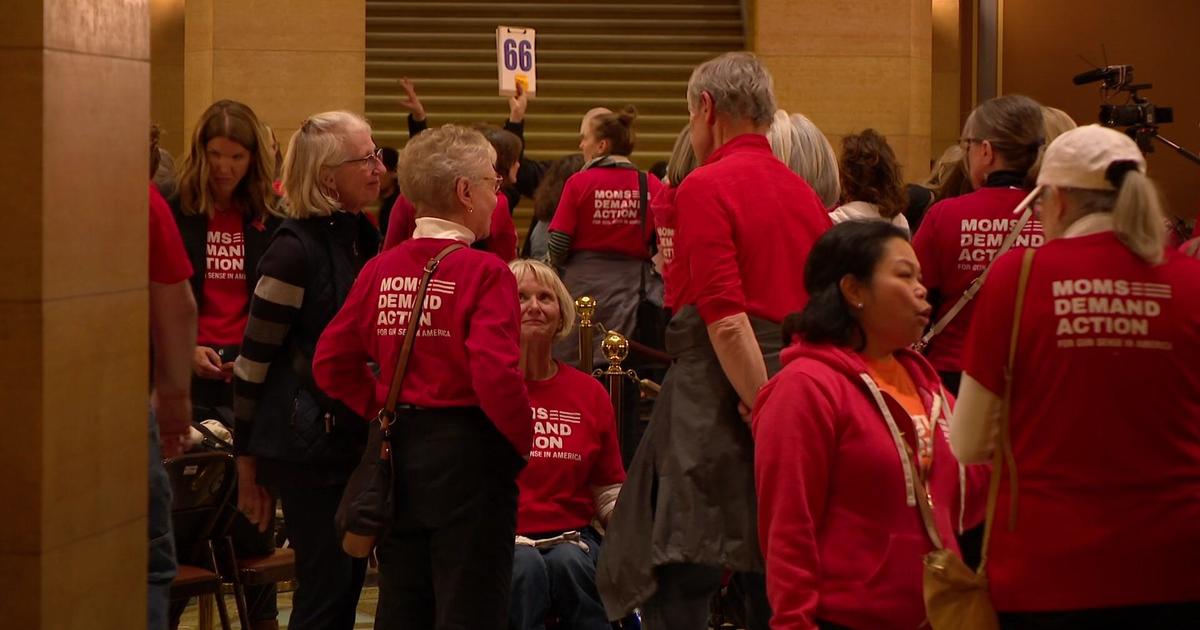Questions Of Timing, Votes Rise Up As Leaders Shape Budget
ST. PAUL, Minn. (AP) — Rank-and-file Minnesota legislators are clamoring for time to digest budget bills assembled in private before the Legislature returns for a quick special session.
Democrats and Republicans outside of leadership ranks are becoming more vocal about avoiding rushed consideration of bills that will spend billions of taxpayer dollars. Lawmakers are under some pressure to act fast because plans for a potential July 1 government shutdown are proceeding in the absence of a ratified deal.
Legislative leaders and Gov. Mark Dayton's aides have held closed-door talks for two weeks on budgets for education, economic development, agricultural and natural resource programs. They are down to a few unresolved issues that must be settled before a session can be scheduled.
Top lawmakers reached a deal Thursday on a public works borrowing bill that includes $373 million in construction projects including money to finish the Capitol renovation, undertake a massive bridge project on the Iron Range and build two University of Minnesota animal research labs. One lab will be an isolation unit in St. Paul and the other in Willmar is for poultry research, which comes at the height of a bird flu outbreak that has greatly affected the state's producers.
"These buildings are not going to be built overnight, but it's apparent this disease is not going away overnight either," said House Capital Investment Chairman Paul Torkelson, R-Hanska. The bill has $180 million in general obligation bonds, which means it takes three-fifths votes to pass.
Thirty-four House and Senate Democrats sent caucus leaders and Dayton a letter Wednesday pleading for 48 hours to give them, stakeholders and the public opportunity to study bills before votes are called. A similar request was also made this week by Republican Senate Minority Leader David Hann.
"Many of us have heard from our constituents that they are dismayed by the lack of transparency in the final stages of legislative sessions," the Democratic lawmakers wrote. "We need to do better."
A possible Saturday special session isn't off the table, but a day or two next week is another option if leaders grant wishes for review time. It's up to Dayton to set the day for lawmakers to convene, and a spokesman said Thursday that decision hasn't been made.
There are also questions about whether the new legislation has enough support to pass, particularly in the Senate. Hann told The Associated Press that the Democratic majority can't bank on his caucus providing critical votes as it did during the regular session.
Dayton vetoed three budget bills passed in closing hours of that session in May, including two that depended on Republican votes to clear the Senate. A jobs and energy bill took 24 Republican votes as most Democrats defected and an agriculture and environment plan passed with the bare minimum after 11 Republicans voted for it.
As those pacts get renegotiated, Hann said his members are worried about what they'll look like in the end.
"The support for those bills is going south," Hann said of Republican backing. "The bills are changing. Things that Republicans liked and voted for are going away. The spending is going up."
Senate Majority Leader Tom Bakk wasn't immediately available for comment Thursday.
One Democratic senator who opposed both of those bills, Roseville's John Marty, said he's hopeful but not confident they have improved. Marty said he remains concerned that Minnesota is loosening environmental regulation too much and changing energy policy in a way that will shift costs from businesses to residential customers.
"I want to have a state budget but there are certain lines we shouldn't cross," Marty said.
(© Copyright 2015 The Associated Press. All Rights Reserved. This material may not be published, broadcast, rewritten or redistributed.)



